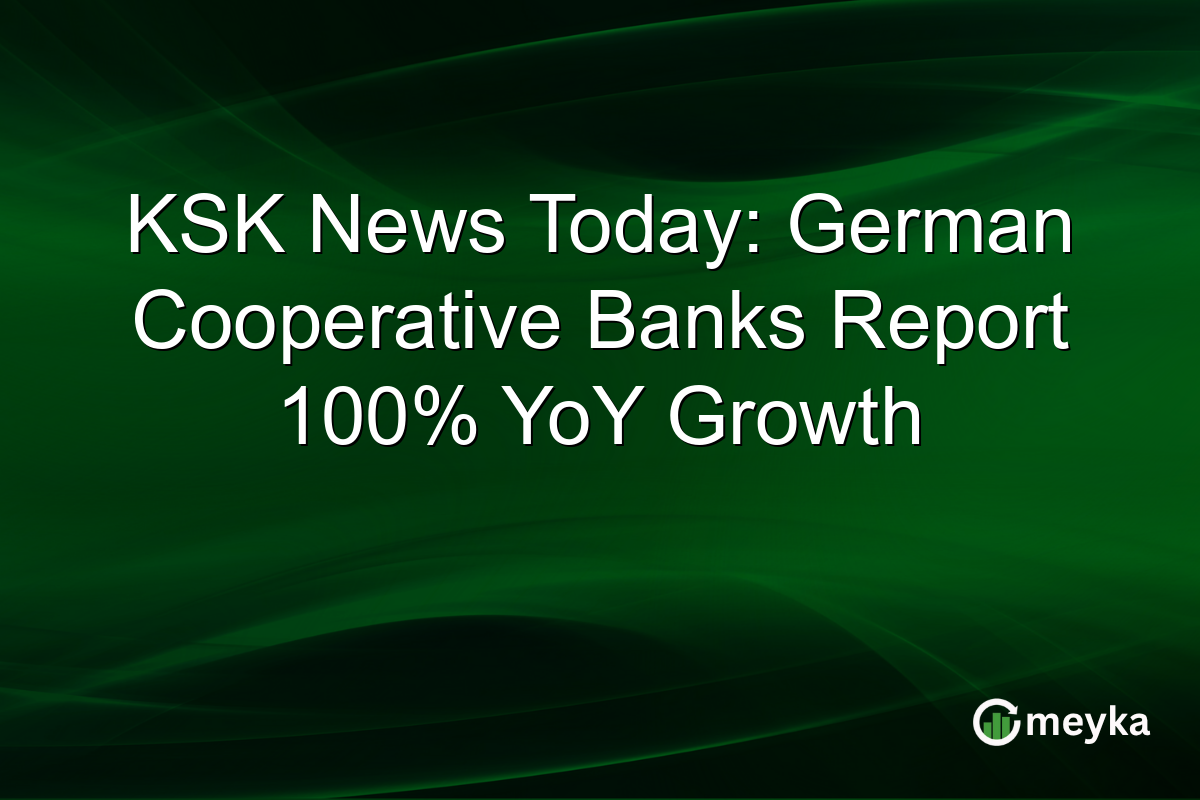KSK News Today: German Cooperative Banks Report 100% YoY Growth
Kreissparkasse, a name synonymous with German cooperative banking, is making waves in financial news today. Recent reports highlight a stunning 100% year-over-year growth in transaction volume. This performance underscores the strength of regional banks and renews confidence in cooperative finance. Let’s explore what this means for the banking sector and the implications on local lending and savings.
German Cooperative Banking: A Resilient Model
KSK banks are part of a robust network of cooperative banks in Germany. Known for their localized approach, these banks serve communities by fostering savings and financial inclusivity. This recent surge in volume is a clear signal of regained trust in regional banks. With over 370 Kreissparkasse branches across Germany, the cooperative model enables better customer relationships and community-oriented banking solutions. The cooperative framework ensures that each bank remains independent while benefiting from shared resources. This setup has allowed KSK banks to remain stable even in fluctuating market conditions. Such growth emphasizes the efficiency and reliability of the cooperative banking model. For more on German banking trends, see the full report on Reuters.
Kreissparkasse Performance and Market Trends
The remarkable performance of Kreissparkasse banks sheds light on their strategic initiatives. By focusing on digital transformation and customer engagement, these banks have strengthened their market position. The 100% increase in transaction volume is a testament to these efforts. This growth trajectory reflects broader trends in German cooperative banking, where digital capabilities meet personalized service. In turn, this enhances customer experience and operational efficiency. The banks’ commitment to sustainable finance further solidifies their market influence. For a detailed analysis of KSK’s rise, check out the insights from Yahoo Finance.
Implications for Local Lending and Savings
The surge in Kreissparkasse’s transaction volume could lead to positive shifts in local lending and savings. With increased transaction activity, these banks are better positioned to offer competitive interest rates on savings and loans. Such growth also supports the local economy by enabling more flexible lending terms for small businesses and individuals. With enhanced liquidity, KSK banks can drive economic development within their communities. This not only benefits account holders but also the broader local economy. For more on this development, explore the detailed report at Bloomberg.
Final Thoughts
Kreissparkasse’s triumph highlights the enduring strength of the German cooperative banking model. The 100% year-over-year growth in transaction volume is more than just a financial metric; it’s a reaffirmation of trust in local banking. This positive trend sets a promising stage for future investments in digital and sustainable banking strategies. By focusing on their core strengths—community engagement, digital transformation, and financial stability—KSK banks are well-poised to continue their success. For stakeholders and clients, this represents an opportunity for enhanced financial security and community development.
FAQs
KSK achieved this growth through digital transformation, enhanced customer engagement, and a focus on sustainable finance, reflecting the strong cooperative banking model.
Increased transaction volume allows KSK banks to offer more competitive lending options, boosting local economic development with better rates and terms.
Cooperative banks like KSK focus on local needs, providing personalized service and financial inclusivity. Their community-oriented approach ensures stability and trust.
Disclaimer:
This is for information only, not financial advice. Always do your research.






